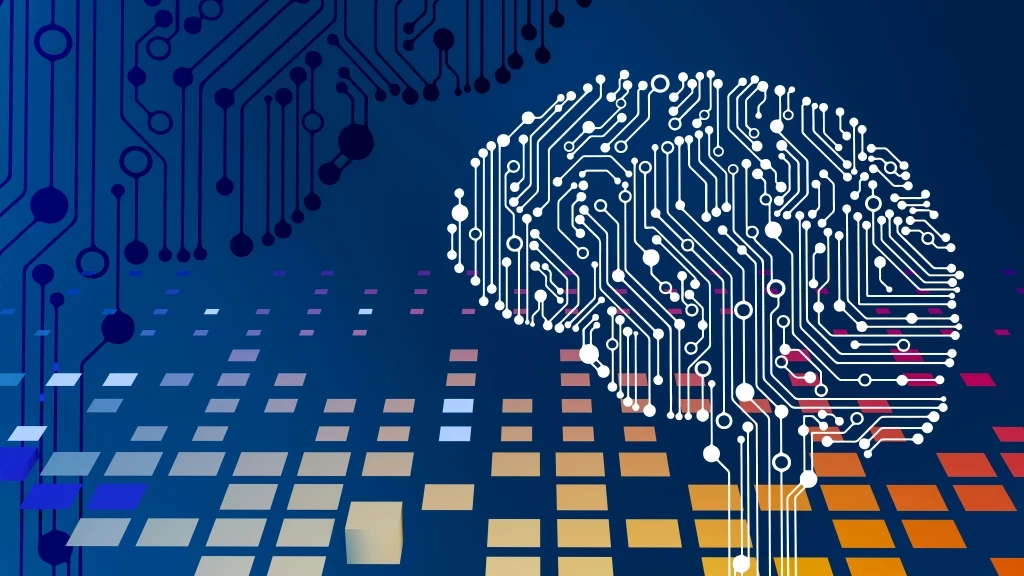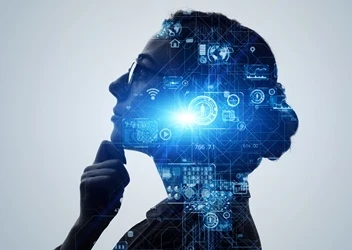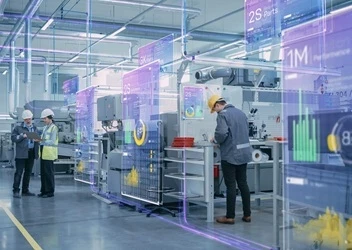Sustaining Improvements: Why It’s All About Challenging Our Own Belief Systems
Add bookmarkBusinesses are always having to evolve – and in today’s world, that evolution happens faster than ever. But to evolve we need to learn new ways of doing things and create new knowledge, which means we must also let go of old learning appropriately and quickly. This requires us – both personally and professionally - to create new habits and ways of understanding the world. This is why “unlearning” is often so much more difficult than learning because we tend to justify and cling to old concepts.
Leaders today, must recognize that while they have the urgencies of business growth, they are dealing with human beings who come from various cultures, nationalities, religions, family beliefs, etc. In short, each individual has a different set of belief systems. The challenge today is how to deal with many different belief systems so that change and improvement are part of the company’s mind-set.
How the Mind Works – The Formation of Belief Systems
The mind continuously receives inputs from various sources, and accordingly, generates thoughts. These inputs could be from our belief systems, our exposure to environmental events, information received from past and present events and our past experiences.
Figure 1: How the Mind Normally Works
Our intellect processes these thoughts and makes judgements to choose our actions. The actions are stored in the brain and repeated similar actions get embedded into our mind. We can call these Belief Systems.
By repeating the same actions in response to similar situations, we tend to start bypassing our intellect and instead are directed by our belief systems. This is like being on auto-pilot and can be dangerous as we lose control over our power to think, discern and analyze.
Different Types of Belief Systems
Belief systems are images of actions that have become our habits over time. These have been embedded into us and we see the world through the filters of these belief systems.
Our personality is the combination of 3 basic types of belief systems:-
Family Belief Systems: These belief systems are inherited from our family. During our early age we are completely under their influence as we learn from parents and elders. We may like to call this family values and ethics.
Environmental Belief Systems: When we grow older, we go out and see the outside surroundings; we slowly get exposed to our religion, culture, nationality, friends, etc. These are the belief systems that we create continuously through our interactions with the environment. Here, we tend to label people and generalize their behaviours. Unknowingly, our decisions could be based on these generalizations.
Self Determination Belief Systems: This is a type of belief system that we can create through our self-determination. Self-determination is a conditioning of the mind to achieve whatever we are passionate about. For example, if I believe that I can become a successful surgeon, then I condition my mind to be one. Once the mind is conditioned, it synchronizes our actions with our determination.
We all desire that that the world move according to our belief systems. We create unwritten rules of right and wrong and want everyone to match up to these. Therefore, when people don’t match our belief systems we immediately become judgmental and label them as wrong.
How Habits are Created from Belief Systems
The mind creates thoughts from the external environment and our belief systems. Thoughts lead to feelings and, over time, feelings develop attitudes (see figure 2, below). We determine our actions by our attitudes; and repeated actions create habits. Habits decide our personality and, thus, our destiny.
But belief systems are not habits. Instead they are imprints that influence our thoughts, feelings and attitudes and help us create our habits. For example, if I have a belief system that my performance is dependent on the appreciation of others (belief), whenever I do something, I, as a matter of habit, will seek the appreciation of others to certify my own performance (action).
Figure - 2: Belief Systems to Destiny
How Belief Systems Influence our Knowledge and Skills
We have seen how belief systems - through thoughts, feelings, attitudes and habits - develop our personality and destiny. However, belief systems have a major influence in the formation of our habits. Whatever knowledge and skills that we learn converts into suitable habits through our belief systems.
For example, when two people graduate in nuclear engineering from the same institute they have the same knowledge and skills to apply it. However, depending on the belief system one may use it for destructive purposes like a nuclear bomb while the other person may use for peaceful purposes to generate electricity. So habits get influenced by belief systems with the same knowledge and skills.
Figure 3: How Habits are created through our Belief Systems
Creating the Kaizen Mind-set to Sustain Improvements
Over the past many decades, many businesses have been trying to implement many Japanese Management philosophies like TQM, TPM, Lean, etc. Why is it that they have not got the similar results as Toyota or other Japanese companies? The key word is trying to “implement”.
When we try to implement, we are in a “compliance mode”. Compliance means that whether we like it or not we must meet the targets; it could be ROI, Sales Revenues, Profitability etc. or even Improvement targets.
Figure 4: Complying with Kaizen – Externally driven thinking
Compliance mode is very much externally driven; “I do something because I have to.” But a true Kaizen mind-set requires more reflective introspection where we try to take control of our mind.
It is only then that you start to identify your own failings so that you can work to address them. This is when we understand that we cannot change others but can influence the change by changing ourselves. Thus this leads us to understanding our current belief systems and challenging them in the context of today’s environment.
Figure 5: Creating a Kaizen mind-set through “Internal-Out” thinking
This means that we need to question and challenge our own belief systems. The question that I need to ask myself is “Do I really want to Change?” If the answer is “Yes” then “Why do I want to change?” It is important for us to realize that we are changing for our own improvements and not changing others directly because we cannot control them.
Once these questions are satisfactorily answered, then we can consider “How do we want to change?” We can then consider all other tools and techniques available because they will fall in place automatically.
“What is the purpose of these tools and techniques? Will I be able to improve myself with these techniques?” The answers to these questions can only come when we are sure that we really want to change.
Therefore, to change others we first need to challenge and change our belief systems and start working upon ourselves continuously. The rest would follow. As we see in the figures above, skill, knowledge, tools and techniques remain the same for everybody.
So we are already equipped with the complete knowledge and skills required for continuous improvement since we have been implementing Kaizen for many years. We now need to take the leap from compliance to “living” Kaizen. This will help us to sustain the improvements and move forward.
However, sustaining improvements requires every one of us to first change ourselves. It requires each one of us to introspect and know ourselves. It requires us to assess and challenge old belief systems and replace them with new ones.
Do we have the courage and the wherewithal to do it? The answer is entirely ours.
[inlinead]



















